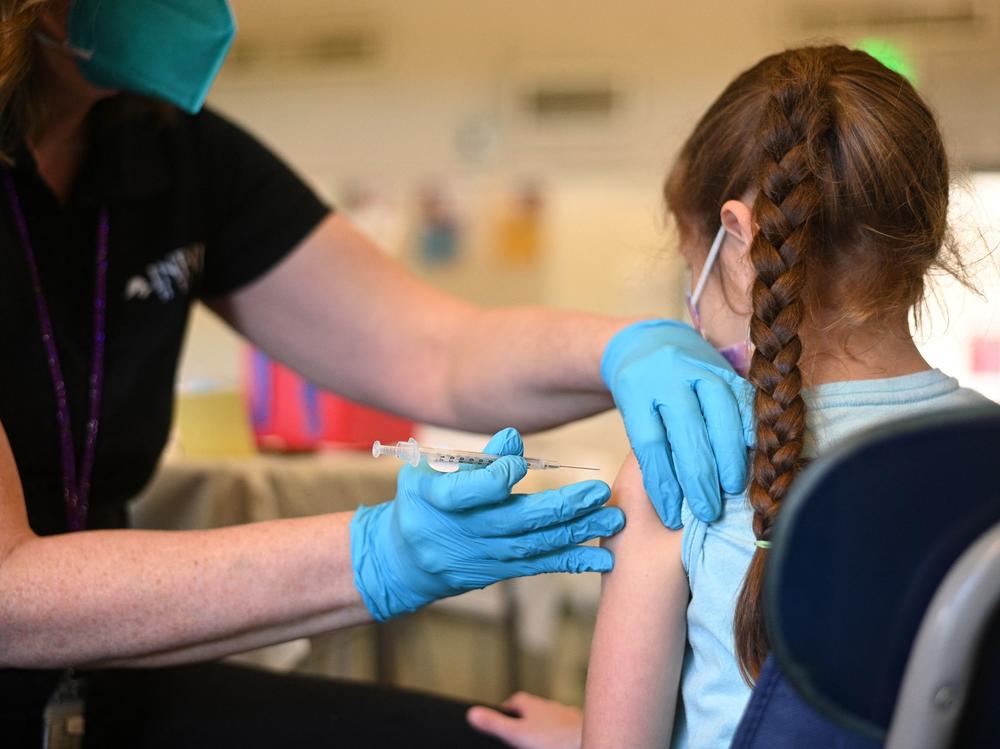Section Branding
Header Content
COVID-19 vaccine for young kids could be ready this month
Primary Content
Updated February 1, 2022 at 7:42 AM ET
The last age group of the population unable to get a Covid-19 vaccine may soon be able to do so — and much earlier than anticipated.
Pfizer-BioNTech is expected to file a submission for emergency use to the Food and Drug Administration for a vaccine regimen designed for use in children aged six months to five years, according to a person familiar with the plan. The companies could file for the authorization as early as Tuesday.
Clinical trials last fall showed that the low doses of the vaccine generated protection in children up to 2 years old but failed to do so in kids aged 2-5. The companies announced in December they'd add a third dose to its trials, which would delay the submission to the FDA.
Emergency use authorization could allow children to begin a two-dose regimen, which would prepare children between 2-5 years old to receive a third shot when the data demonstrates its effective.
"By now they probably have more information on whether the two shots provided any protection at all," Dr. Bob Wachter, chair of the University of California San Francisco Department of Medicine, said .
"It seems likely the third shot will be necessary ... but you can't get shot #3 until you've [had] shots 1 and 2," he wrote in an email Monday night.
A spokesperson for Pfizer emailed a written statement that says "At this time, we have not filed a submission, and we're continuing to collect and analyze data from both two and three doses in our younger age cohort."
The FDA authorized the companies' vaccine for children aged 5 through 11 years old last October, but use among children remains significantly lower than the overall population. According to data from the Centers for Disease Control and Prevention, only 21.6% of children 5-11 are fully vaccinated.
"The key question is whether the parents of younger children will get their kids vaccinated," Dr. Celine Gounder, a clinical assistant professor at NYU Langone Health, said . "Parents are relatively more hesitant to get their young children vaccinated than themselves."
Dr. Gounder predicted vaccination rates for the younger group of children would mirror that of the group already authorized for the doses.
Copyright 2022 NPR. To see more, visit https://www.npr.org.

